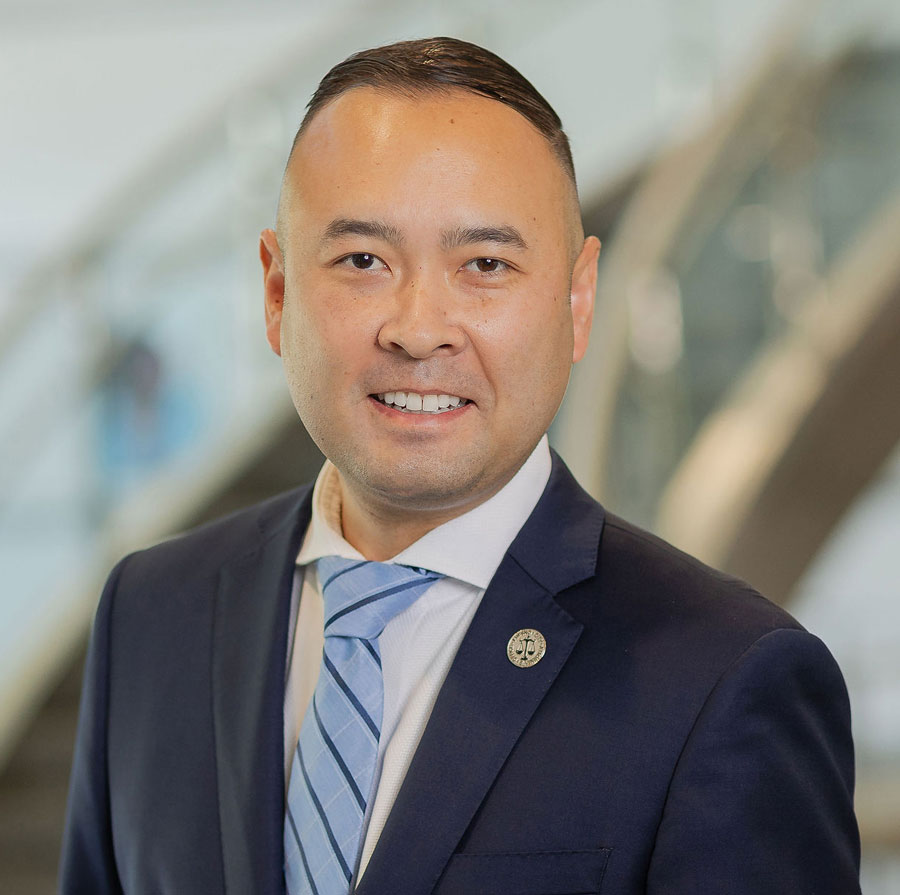City Attorney / Andrew Janz

The City Attorney’s Office represents and advises the Mayor, City Council, City boards and commissions, and City officials and departments in legal matters pertaining to their office and City operations, which include municipal utilities, airports, and public transportation systems.
The City Attorney’s Office prepares legal opinions, ordinances, resolutions, contracts, and other documents requested by the Council and City organizations; implements the legal aspects of policies and programs established by the City; handles criminal prosecution as part of the Office’s code enforcement responsibilities; serves as counsel for the Successor Agency to the Redevelopment Agency; defends the City in civil litigation; and monitors cases assigned to contract legal counsel.
The City Attorney’s Office includes code enforcement, covering rental housing inspections, substandard housing, public nuisance and blight, vacant buildings, illegal dumping, tire dumping, conditional use permit and zoning violations, dangerous buildings, weed abatement, and the Neighborhood Revitalization Team.
Legal Resources
State Law
City Codes
Public Records
The California Public Records Act (CPRA) is California state law that gives the public the right to inspect and copy most records retained by governmental agencies in the course of business. The CPRA regulates the public’s access to the records and contains limited statutory circumstances when records need not be disclosed.
The City department where the records are located is responsible for responding to requests for public records as the custodian of records. The City Attorney’s Office is frequently consulted to assist City staff in responses to requests.
Legal Memos
Election Issues
For City of Fresno election questions, please contact the City Attorney at 559.621.7500
Cannabis Issues
In response to numerous questions regarding when the City will accept and issue licenses for cannabis businesses in Fresno, here is a brief summary of our status.
On December 13, 2018, Fresno City Council adopted the Cannabis Retail Business and Commercial Cannabis Business Ordinance, which sets out the permitting framework and regulatory requirements for Medicinal and Adult Use Cannabis businesses to eventually operate within the City for commercial activities such as cultivation, manufacturing, and distribution. Read the ordinance. This ordinance may be further refined by the City Council over the next several months.
Although the Cannabis Business License Tax has been approved and the Cannabis Retail Business and Commercial Cannabis Business Ordinance has been adopted, the City can not issue any Commercial Cannabis Business Permits to begin operating legally until the remaining components are completed. In addition, the City is establishing the application processes for licenses to be issued by the City. Applicants who are issued licenses by the City will also need to complete the Conditional Use Permit process before they open. And go through the standard planning and building permit process for any tenant improvements they may be constructing.
This web page will be updated on a regular basis to reflect these milestones as they are achieved.
- Office of the Cannabis Oversight
- Memo to Cannabis Businesses
- Cannabis Tax Rate Resolution
- Cannabis Ballot Measure Resolution
- Cannabis Regulatory Ordinance
- Resolution of Initiation 12/14/17
- Commercial Cannabis Map
- Retail Cannabis Map
- Notice of Preparation of the Cannabis EIR
- Notice of Availability of the Cannabis Draft EIR
- Memo – Requests to Meet
Office Administration
Employment Opportunity
Code Enforcement and Rental Housing Issues
- ASET resolution
- ASET Weekly Status Report
- Tenant Relocation Assistance Information
- Receivership Potential Property Sale List
- Rental Housing Information: Landlord and Tenant Responsibilities – English
- Información sobre viviendas de alquiler: Responsabilidades del propietario y del inquilino – Español
- Ntaub Ntawv txog Tsev Xauj: Tswv Tsev thiab Tus Xauj Tsev Txoj Hauj Lwm – Hmong
- Landlord and Tenant Resources
Management Team
Management Team for the City Attorney
Policies
Resolutions adopted by the City Council
Code Enforcement
Enforcing the City’s Minimum Housing Code
Wage Protection Program
The City of Fresno’s Wage Protection Program
Smoke-Free Housing
Protect residents from second or third-hand smoke exposure
Eviction Protection Program
Defends tenants renting an apartment or house



